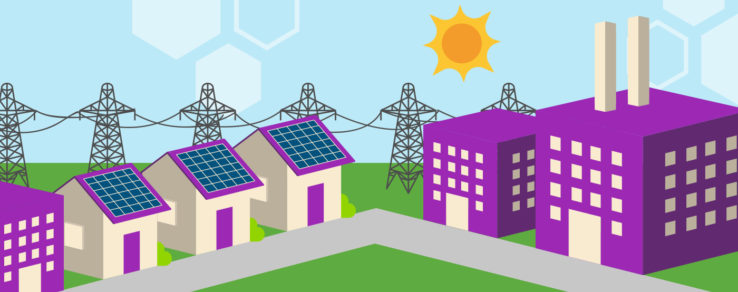Smart devices have changed the way we interact with technology, and smart meters are no exception. Gone are the days when analog meters would only show how much energy was used, and monthly bills could offer little to help homeowners and businesses truly understand their power consumption. Now, smart meter data puts the power into customers’ hands by providing detailed, actionable information on their energy usage.
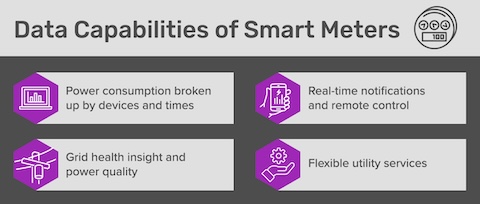
Data capabilities of smart meters
- Power consumption subdivided by devices and times
- Grid health insight and power quality
- Real-time notifications and remote control
- Flexible utility services
Smart meters can monitor how much power customers are currently using, how many kilowatt-hours they’ve used, and even which devices are using that electricity. Basic data is shared with customers, allowing them to analyze their energy habits. Additionally, smart meter data is shared with utilities to provide insightful feedback and tailored energy savings suggestions.
But did you know that this powerful two-way connection can benefit both utilities and their customers in other ways? Real-time, accurate data can be used for much more than just monthly energy check-ins at the end of each billing cycle.
Unlocking the Potential of Smart Meter Data
As more utilities and their customers switch to advanced metering infrastructure (AMI), more data about individual energy use and the overall grid will be available. As a result, the capabilities of managing consumption will only expand.
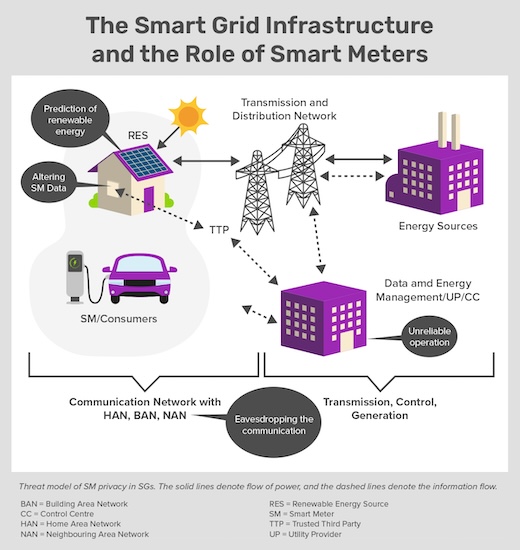
This data also offers utilities a nonintrusive way to learn more about their customers and better tailor services to each individual. Read on to learn how to use smart meter data — including energy consumption patterns, peak demand times, load profiles and more — to strengthen your utility’s relationships with homeowners and businesses.
3 ways to enhance customer communications with smart meter data
1. Energy education and programs
Customer usage data, especially concerning specific appliances, can inform utilities on areas where more education could be useful. While many large-scale studies on energy use may take months or even years to produce usable data that can influence programs, real-time smart meter data is transmitted in minutes.
Accurate bills and reliable forecasts can help customers on a monetary level. These numbers can be used by the utility to make tailored recommendations for energy savings. But, that’s not all. For example, if a customer uses appliances inefficiently, such as leaving large electronics on all night, smart meter data can offer insight on what programs or rate plans could benefit them.
2. Customer segmentation
The more your utility learns about customers and how they use energy, the better it can segment them based on needs, preferences and behaviors. Utilities can use these learnings to tailor offers and services accordingly.
For example, customers with old, inefficient appliances could benefit from information about potential rebates available on new appliances purchased. A customer who uses most of their energy during off-peak hours could benefit from information about time-of-use rate plans.
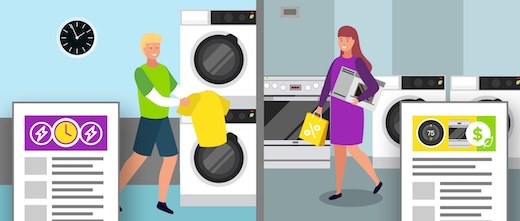
Depending on how customers respond to initial interest emails, your utility may be able to send even more tailored communications in the future.
3. Grid resilience + reliability
Did you know that the American electric grid is more than 100 years old? Though it’s seen quite a few infrastructure updates since then, very few have had as much impact as smart technology.
Smart meters are just a part of a larger, connected system that makes up the smart grid, which uses renewable energy systems and other advanced equipment to increase the strength and reliability of electricity.
Data received from smart meters provide insight into the current load placed on the grid, especially if the capacity is nearing its limit. High-demand periods can typically be predicted before they occur, and potential outages can be detected and even prevented thanks to the data gathered by this smart system.
By understanding your customers’ needs, your utility can provide tips and information to help them better manage their energy use, strengthening your relationship with customers.
Challenges of Using Smart Meter Data
Though the number of smart meter installations is steadily climbing each year, that doesn’t mean that all customers immediately accept the new technology. Security concerns have been the source of fear for quite a few years, especially when it comes to fears that utilities will use that information in unwanted ways. Providing answers to customer questions is crucial to maintaining a trusting relationship.
Common concerns among customers include the accuracy and privacy of their smart meter data.
1. Accuracy
After decades of trust in analog meters, some customers have questions concerning the accuracy of smart meters when it comes to measuring energy use.
Customers can rest easy knowing all meter manufacturers are required to test for accuracy and provide those results, proving that they follow the performance standards set by the American National Standards Institute. Before a meter ever reaches a customer’s property, it has been tested multiple times to ensure it will provide on-the-mark measurements.
Plus, real-time data transmission between the meter and utility keeps everyone in the loop and can immediately cause an alert if any part of the system is malfunctioning.
2. Privacy
Data security may be the most common concern with most new technology, and smart meters are no exception.
Advanced security and encryption technology are used by utilities to protect customer data, and smart meters fall under that same level of protection. Unless a customer has other smart devices or an energy management system that can break down usage by appliance, utilities will only receive data concerning how much energy is used and at what time.
Customers can customize their smart meter experience based on their personal preferences and choose to keep detailed information private. Communication is key to ensure customers that their data will be safe with smart meters.
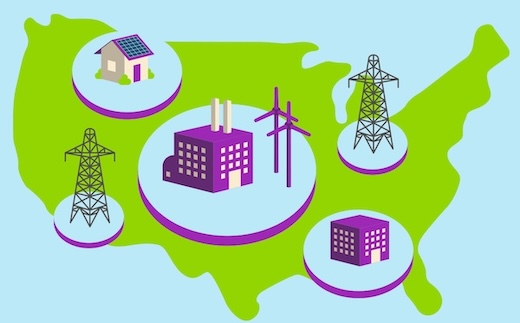
Use Smart Meter Data to Strengthen Customer Relationships
Data collection has become standard across many industries, and not all of it is used for good. Maintaining a strong, trusting relationship requires handling all data safely and securely, and walking a fine line between providing valuable suggestions and overstepping boundaries.
Learning more about your customers through smart meter data is an effective way to determine what services they could use most and to build programs that serve these needs.

